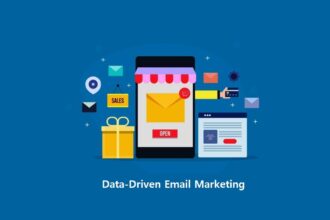![]() Meg Bear of Oracle, who manages their Cloud Social Platform, hammered multitenancy in her post “Multitenancy and Other Useless
Meg Bear of Oracle, who manages their Cloud Social Platform, hammered multitenancy in her post “Multitenancy and Other Useless
![]() Meg Bear of Oracle, who manages their Cloud Social Platform, hammered multitenancy in her post “Multitenancy and Other Useless Discussions,” on Oracle’s blog. She says “multitenancy doesn’t matter … in the same way that your VHS player having progressive scan doesn’t matter.” Saying that I disagree with Meg would be an understatement. I casually responded to the post but the Oracle moderators didn’t approve my response (seems like they only allow their own marketing people to comment on their blogs), so let me try to provide a more cogent argument here.
Meg Bear of Oracle, who manages their Cloud Social Platform, hammered multitenancy in her post “Multitenancy and Other Useless Discussions,” on Oracle’s blog. She says “multitenancy doesn’t matter … in the same way that your VHS player having progressive scan doesn’t matter.” Saying that I disagree with Meg would be an understatement. I casually responded to the post but the Oracle moderators didn’t approve my response (seems like they only allow their own marketing people to comment on their blogs), so let me try to provide a more cogent argument here.
When (prominent) people make claims such as this one, it may either be because they’re old school (and haven’t yet grasped the realities of the cloud), or because they’re just making a self-serving statement. Since Oracle has historically taken a consistent stand against multitenancy, I would guess it’s the latter.
So, first let me just say it bluntly. If you’re buying a product which is labeled “cloud” but is not multitenant, you’re simply buying on-premise software. It may still be good software but it is not cloud software. The entire concept of the cloud is based on sharing resources, which is accomplished through multitenancy. My InformationWeek article, “Why Multitenancy Matters in the Cloud,” highlights why a buyer should care about multitenancy.
You cannot compare multitenancy in the cloud to a feature in a VHS player. An apt comparison would be with the concept of an assembly line in manufacturing. What Henry Ford, with the assembly line, gave to the world was a radically efficient way of producing vehicles. The other automakers at that time, who didn’t switch to this model, claimed that it didn’t matter to the car buyer how the operations of a car manufacturing plant were structured, as long as the car had all the desired features (technically, they were correct). In due course, however, each of the automakers was either forced to switch to the assembly line or go out of business, because of all the reasons now apparent to everyone.
Marc Benioff and salesforce.com demonstrated to the world what multitenancy can do – they did to software what Henry Ford did to manufacturing (or Steve Jobs did to mobile computing). If their tremendous success isn’t evidence, wait for a few more years to witness the gradual demise of the traditional software delivery model (that doesn’t mean the traditional vendors won’t fight tooth and nail to convince the world that the cloud and multitenancy don’t matter).
In fact, multitenancy operates at several levels in the cloud world. Salesforce is multitenant and Navatar, another layer of cloud software used by financial firms, which sits on top of Salesforce, is also multitenant. Which means that as and when either Salesforce or Navatar improves, all customers automatically benefit. As more customers sign up, they share the cost, so both Salesforce and Navatar benefit.
So getting back to the Oracle platform, Meg does say that it is also multitenant, but according to her, what really matters is business value, not multitenancy. That’s stating the obvious – of course, no product (even it is a photocopier) can survive if it doesn’t deliver business value. But why the stand against multitenancy?
As, I wrote in my InformationWeek article, “Those who say multitenancy isn’t necessary to making the cloud model work are typically companies that have long made money from on-premise software and don’t want to cannibalize their existing revenues. They might offer a subscription for their single-tenant application, but this could simply be the software license, maintenance, and hosting fees divided into monthly payments which almost certainly would be much higher than a comparable multi-tenant application.”
That may be one explanation – Oracle may prefer to install boxes at every client site, so naturally, they find multitenancy to be a thorn in their side. Another explanantion, as David Linthicum offers in his Infoworld post, “The Silly Debate About Multitenancy,” is that vendors often “find that building multitenant architectures is a much bigger nut to crack than they thought.” Either way, Linthicum agrees, there should be no debate here: “Cloud computing, both private and public, requires the concept of multitenancy. The traditional providers are welcome in the cloud as long as they can provide multitenancy. If you can’t do it, then don’t try to argue that it’s not needed. Get to work!”
As Denis Pombriant observes, IT is over. As a buyer of a cloud product be aware: If you’re buying a cloud product that isn’t multitenant, you’re buying it from someone who really wants to sell you boxes or consulting or something else – there is a high probability that that product won’t survive the next few years.






